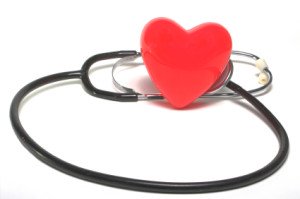 What Is Heart Failure?
What Is Heart Failure?
This week in my Web search, I found an interesting resource called the Mayo Clinic health letter. The June 2011 topic was about heart failure. Because it is strongly related to heart problems and I feel your risk can be improved by following a heart healthy menu plan, I thought it would be a good topic to discuss on the blog. So in general heart failure means your heart isn’t working quite right and can’t get blood to where it needs to go. This is something that happens progressively over time, and is because people have high blood pressure or heart problems that are not taken care of and result in further injury to their heart. It’s a very important topic as it can result in death – 5 years after diagnosis, the death rate is about 50% for both men and women.
Conditions that contribute to the risk of heart failure are things such as coronary artery disease, also known as heart disease, and high blood pressure. While having these conditions does not necessarily mean you’ll develop heart failure, if not taken care of your risk is increased for developing heart failure.
What Should I Do Now?
If your doctor has prescribed medications for controlling your coronary artery disease or high blood pressure or other heart related illness, you should take them as prescribed and follow-up with your doctor regularly. Make sure if you have a family history of heart problems that you discuss with your doctor your needs and your risk.
In addition to following your doctor’s advice, you should control your weight and stay near a healthy weight to reduce your risk for developing high blood pressure, type II diabetes and high cholesterol. If you’re overweight, it’s been proven that losing about 10% of your weight will lower your risk significantly as well as make you feel a lot better. How do you lose weight? When you follow a heart healthy diet and increase your intake of whole grains, fruits and vegetables, and decrease the amount of fat and salt that you eat, you will see a marked improvement in your overall health. If you need a simple guide with weekly recipes you could try out our heart healthy meal plan. Exercising also lowers your risk as well as helps you lose weight, and you should discuss with your doctor the type of exercise that is appropriate.
How Does a Heart Healthy Menu Plan Fit in?
A heart healthy menu plan can help lower your risk. Even if you have not had a heart attack or have high blood pressure, following the guidelines of a heart healthy menu plan – eating lower sodium, lower fat food items – will help you with controlling your risk of developing those conditions. If you think about it is easier to adjust your lifestyle now by exercising and eating a better diet then recovering from a heart attack.
So start with eating more fruits and vegetables and make sure that your plate is really colorful. When I say colorful, I mean things like eating carrots and green beans instead of just yellow or white vegetables. Although potatoes can be healthy, even healthier is a sweet potato because it contains more beta-carotene and Vitamin A. Green beans, squash, carrots and tomatoes are all food items that are higher in fiber and lower in calories, resulting in you feeling fuller without adding weight. Now, it does depend what you add to these food items. When you are thinking about toppings, go for a light dressing or a light butter or even Greek yogurt instead of starting with butter and salt.
You should remove the salt shaker from your table and watch how much you add in your recipes. Realize that when you eat convenience foods such as frozen bagged meals or frozen dinners, those items can contain a larger amount of sodium than if you had prepared them from scratch. Consider taking a look at the frozen foods in your grocery store and finding a recipe that you can make at home. If you don’t have a lot of time during the week to cook, try to find recipes that you can make double portions on and freeze part of the meal. Make sure when you freeze it, it’s in a microwave-safe container and then when you come home instead of having to make a prepared frozen meal you can microwave the meal that you are ready made that is lower in sodium.
Your heart and your brain are the two parts of your body that you can’t live without! Start early taking care of them and they’ll reward you for the rest of your life. Check out my other posts for more information about your heart health.
[…] pumping, ready for anything the day throws your way. Especially when you are living with chronic health conditions, a good breakfast can mean the difference between feeling great or feeling terrible, not to mention […]